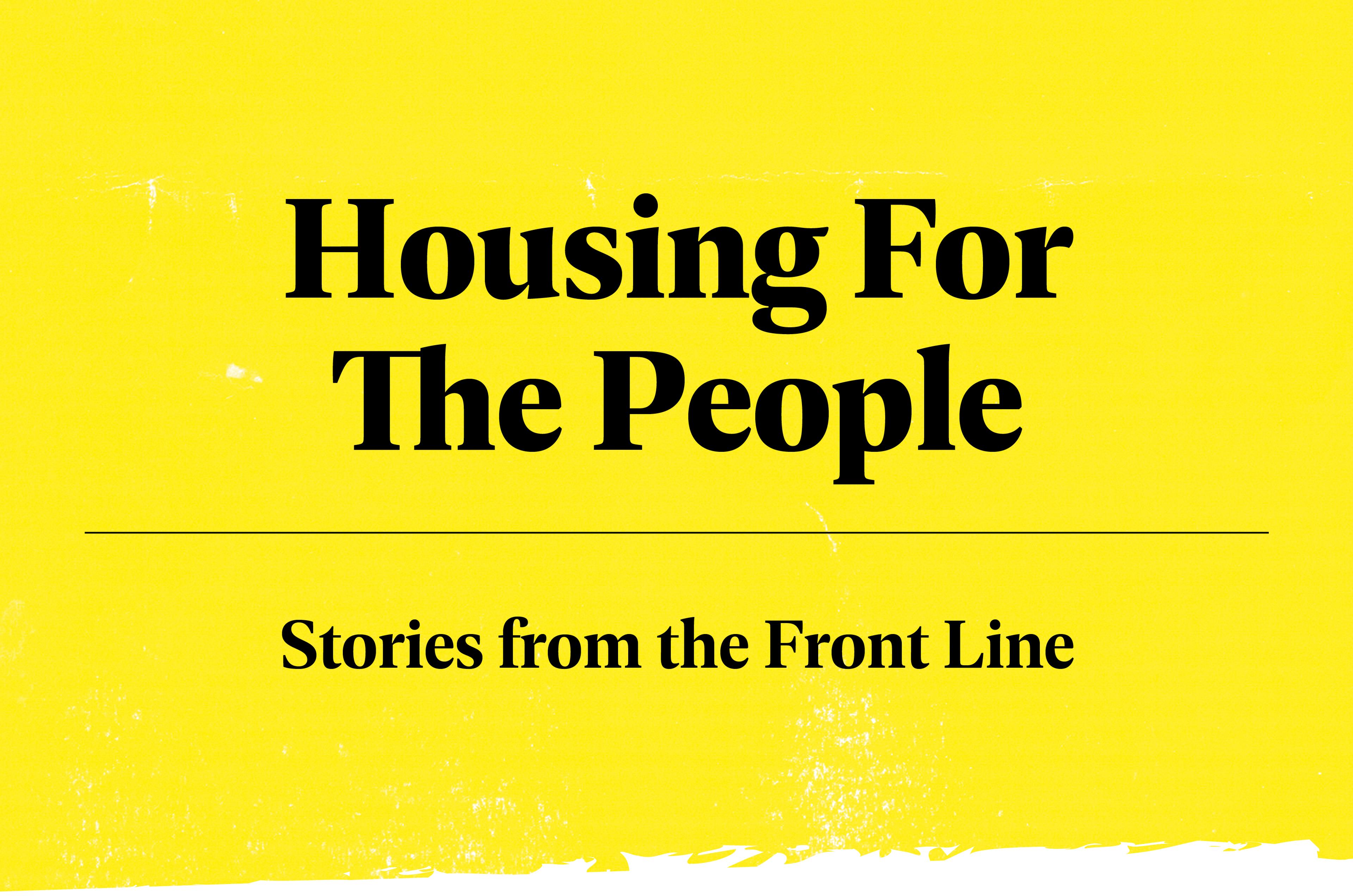Housing for the People: Addressing housing instability with equity in mind

By Janiah Miller
- Lived experience
Janiah Miller – an advocate experienced in providing support to political campaigns and offices, assisting in legislative and constituent support, and building intersectional coalitions within the community – writes for INSP’s latest ‘Housing for the People’ column about how the culminating moment of the American Dream – owning a home – is not equitably accessible to all.
One of America’s most valued beliefs is that if you work hard enough, you’ll obtain success. For many, the ultimate symbol of success, and the culminating moment of the American Dream, is owning a home. But this belief is ultimately a misconception, as home ownership is not equitably accessible–even with higher education and a stable job. The nationwide affordable housing crisis has persisted for decades and continues to be exacerbated by limited resources. Decision-makers must approach this crisis with racial equity at the center, elevating those with lived experience to the forefront of policy design and implementation. Doing so can rectify the disparate impacts on communities of color and those with low incomes.
Affordable housing is a multidimensional issue affecting individuals across socioeconomic backgrounds. Yet, Black, Indigenous, and people of color (BIPOC) are disproportionately impacted at higher rates. Without transformational change that centers their voices and experiences, the issue will only worsen.
Proposed Policy Changes
The Biden Administration recognized housing instability as a central issue of the American Jobs Plan. That proposal includes two of the three HoUSed campaign’s top priorities for an infrastructure bill: 1) $45 billion for the national Housing Trust Fund, supporting construction and preservation of affordable homes for people with the lowest incomes, and 2) major investments to rehabilitate and preserve the nation’s public housing stock. Policy changes like these are important, as landlords evict BIPOC tenants at alarmingly high rates and use the courts to manage basic issues that could be resolved through simple communication. In many cases, landlords evict tenants over small sums as little as $301.
An eviction can impact access to quality public transportation and school while leaving a stain on an individual’s record that can affect their life greatly. A home whether it be an apartment or house can be directly linked to basic necessities as they can be in the proximity of where they live, for example, reliable transportation such as, bus stops. Evictions also impact mental and physical health, as housing insecurity can lead to experiencing homelessness and increased rates of violence. In all cases, tenants are left vulnerable when landlords are only minimally accountable. Local, state, and federal decision-makers must also address this lack of accountability to curb housing instability and protect communities of color. Luckily, existing vehicles have proven impact and broad support.
Part of the solution: Housing trust funds
Affordable housing trust funds are a leading strategy for addressing critical housing needs. They are distinct funds with ongoing, dedicated sources of public funding to support the preservation and production of affordable housing. These funds provide an important source of financing for affordable housing preservation and development, which may not otherwise be included in a city’s budget. Therefore, municipalities across the country commonly use them to generate and hold revenue for affordable housing development and preservation.
Last fall, working as a community canvasser with the Greater Cincinnati Homeless Coalition, I saw the direct impact of these funds on a community. While collecting 600+ signatures for the Affordable Housing Trust Fund Ballot Initiative, I learned firsthand about the impacts of housing on individuals’ lives. For example, with gentrification on the rise, many K-12 [kindergarten to 12th grade] students are in a constant state of shifting their school and home environments. I spoke with individuals who were displaced numerous times, leading to many physical and mental health issues. I also shared my own experience of the difficulty finding affordable housing as a recent college graduate pursuing a master’s degree. While collecting signatures at the Board of Elections, both Democrats and Republicans showcased a point of commonality in their struggles around housing. Across political lines, they supported the affordable housing trust fund to address the crisis. Grassroots initiatives can be key in advancing needed change around harmful policies.

Affordable housing is a multidimensional issue affecting individuals across socioeconomic backgrounds. Yet, Black, Indigenous, and people of color are disproportionately impacted at higher rates. Without transformational change that centers their voices and experiences, the issue will only worsen.
Addressing the racial wealth gap
We are now more than a year into the civil unrest sparked by numerous murders of Black people at the hands of police. Since then, research and advocacy organizations have committed millions of dollars to advancing racial equity across sectors. Housing must be a particular focus of these efforts, with specific emphasis on equitable policies such as rent control, baby bonds, a tenant bill of rights, equitable development, and guaranteed affordable housing. Black homeownership must especially be prioritized, as disparities in homeownership are a primary driver of the widening racial wealth gap. The consequences of this gap, caused largely by racist government policies such as redlining, are still seen today.
As society continues to reckon with the devastating impacts of such policies, it is more urgent than ever to find creative solutions that address these historical barriers and seek to create a more equitable future. When equitable development is prioritized in communities, it allows for desperately needed, inclusive housing policy. Organizations that are making commitments and contributions to efforts around racial equity should build momentum around these policies, which could have a large, multigenerational impact if implemented. More importantly, because government policies have historically shut the Black community out of the housing market, policymakers should be held accountable to act. This case is most notably made in Ta-Nehisi Coates’ ‘A Case for Reparations’.
Adequate, well-maintained housing is the foundation of a safe and stable life. It is an economic justice issue and should be considered a human right. We need increased advocacy to push for affordable housing as essential. Individuals and entities can lobby their constituencies to begin thinking about housing inequity as a racial justice issue connected to economic mobility. There should be energy around donating to local, BIPOC-led, grassroots efforts that are working to effect change equitably. Local governments and other stakeholders should begin embedding and institutionalizing racial equity into all housing and community development efforts. It is essential to value and center those with lived experience in all implementation processes, as they are most impacted by policies that have historically devastated their economic mobility. This will allow individuals with powerful, authentic voices and unique insights to be in decision-making positions where they can change assumptions, motivate organizations to do things differently, and pinpoint areas for change. Integrating people with lived experience is critical in the creation of policy addressing housing insecurity and homelessness. It cannot be reiterated enough how fundamental housing is to everything – it is a human right at the center of achieving racial equity.
Janiah Miller is currently pursuing her master’s in public administration and social justice at the University of Cincinnati. Her advocacy has taken many forms: she provided support to political campaigns and offices, assisted in legislative and constituent support, both locally and nationally, and built intersectional coalitions within the community. Her passion areas are housing equity through an economic justice lens, education and neighborhood safety.
Housing for the People is a column produced by the International Network of Street Papers from people on the frontlines of the housing justice movement in America and beyond.
Courtesy of INSP North America / International Network of Street Papers
